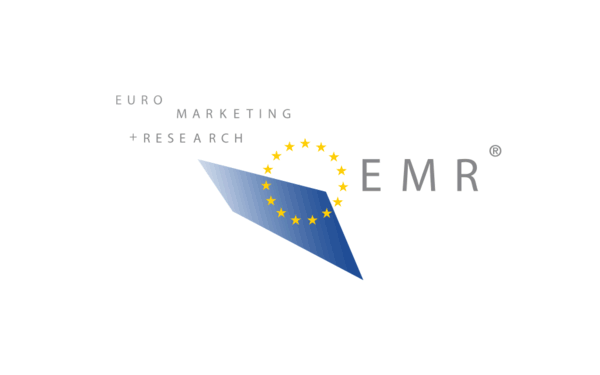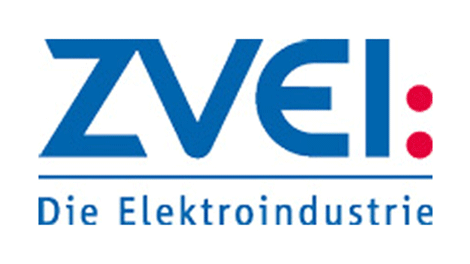ZVEI – E-associations are calling for clarity around the Building Energy Act
Joint press release from VDE, ZVEH and ZVEI
The ongoing debate about the Building Energy Act is slowing down the energy and heating transition in the building sector: the demand for heat pumps has fallen sharply, homeowners are reluctant to make climate-friendly investments, manufacturers and trades are unsettled. In view of the forthcoming decision in the Bundestag, the VDE, ZVEH and ZVEI are calling for clarity and planning security for all those affected. The decarbonization of the building sector affects the general population and must therefore be implemented in a socially responsible and ambitious manner.
In addition, according to the associations, it is important not only to focus on the high efficiency of the heat pump. Above all, the interaction of the individual components is important – from energy generation to storage and consumption to the efficient distribution of energy.
Technologies such as photovoltaic systems, heat pumps and storage can help reduce energy consumption. An integrated energy management system, which, in addition to these components, also includes the charging infrastructure for the e-vehicle, household appliances, shutters and air conditioning, ensures that the e-car is always charged with solar power and the washing machine is only switched on when there is still enough PV – Electricity is available or the electricity drawn from the grid is particularly cheap. The intelligent system takes weather influences into account – the dishwasher only switches on when there is a high level of PV generation – as well as the habits and requirements of the people living in the house.
All of these technologies have been around for a long time. Politicians should encourage their use instead of slowing it down. After all, they make a significant contribution to achieving the politically set climate goals.
VDE, ZVEH and ZVEI will show how PV systems, storage tanks, heat pumps and wallboxes, energy management systems and building automation and much more interact with each other and thus develop efficiency potentials at the IFA from September 1st to 5th, 2023 in the “House of Smart Living” in the new designed Sustainability Village (Hall 2.2).
Voices from the associations
“Consumers are becoming prosumers, which is an important element of our future energy system. There are many ways to involve consumers more in the energy transition. The technological solutions and applications are there, now they just have to be implemented quickly in regulatory terms. We at the VDE are working on this e-dial future in many areas by guaranteeing protection and security, whether through standardization or testing and certification,” says VDE boss Ansgar Hinz .
“Technical developments bring benefits for people and they ensure the emergence of new business areas for companies. Comfort, security and health can be improved with the help of smart buildings. We are rebuilding the energy system and trimming it for sustainability. This will require high investments and transformation efforts. To claim otherwise is window dressing. The current crises in particular prove that doing nothing is ultimately more expensive and more harmful to society and the economy. It is therefore important to put the opportunities of change in the foreground,” says ZVEH Managing Director Alexander Neuhäuser .
“Through the clever interaction of electrification, digitization and automation in the building sector, we can save up to 65 percent of primary energy. If we cleverly generate, use, store and distribute electrical energy in buildings and districts, then we not only permanently reduce operating costs, but also make a significant contribution to achieving climate targets. But that also means that the electrical infrastructure in older buildings has to be upgraded,” says Wolfgang Weber, Chairman of the ZVEI Management Board.
EMR Analysis
More information on ZVEI: See the full profile on EMR Executive Services
More information on Wolfgang Weber (Chairman of the Executive Board, ZVEI): See the full profile on EMR Executive Services
More information on Dr. Gunther Kegel (President, ZVEI): See the full profile on EMR Executive Services
More information on the German Electrical Engineers Association (VDE): https://www.vde.com/en + VDE, one of the largest technology organizations in Europe, has been regarded as a synonym for innovation and technological progress for more than 130 years. VDE is the only organization in the world that combines science, standardization, testing, certification, and application consulting under one umbrella. The VDE mark has been synonymous with the highest safety standards and consumer protection for 100 years. Our passion is the advancement of technology, the next generation of engineers and technologists, and lifelong learning and career development “on the job”. Within the VDE network 2,000 employees at over 60 locations worldwide, more than 100,000 honorary experts, and 1,500 companies are dedicated to ensuring a future worth living. The headquarters of the VDE (Association for Electrical, Electronic & Information Technologies) is in Frankfurt am Main.
More information on Ansgar Hinz (Chief Executive Officer – Chairman of the Executive Board, VDE): https://www.vde.com/en/about-us/supervisory-management-board/management-board/vde-ceo + https://www.linkedin.com/in/ansgar-hinz-vde/?locale=en_US
More information on the VDE Testing and Certification Institute: https://www.vde.com/tic-en + Founded in 1920, the VDE e.V-supported Prüf- und Zertifizierungsinstitut GmbH (VDE Institute), headquartered in Offenbach, has worldwide know-how. Products are accordingly tested for applicable quality, health, environmental protection, safety, and social responsibility standards in nearly every market in the world. The results of the tests are scientifically evaluated and are included in the continued development of electrical standards.
More information on Sven Öhrke (Member of the Executive Board of the VDE Testing and Certification Institute, VDE): https://www.vde.com/tic-de/vde-weltweit/global-services + https://www.linkedin.com/in/sven-%C3%B6hrke-a3604743/
More information German Electrical and Electronic Trades Association (ZVEH): https://www.zveh.de/ + The ZVEH represents the interests of 49,592 companies from the three trades of electrical engineering, information technology and electrical engineering. With 518,176 employees, including 45,808 trainees, the companies generate annual sales of 72.2 billion euros. The ZVEH as a federal guild association includes twelve state associations with 313 guilds.
As the Federal Guild Association for electrical and information technology trades, the ZVEH represents the following professions:
- electrical engineer
- information engineer
- electrical machine builder
and the assigned training occupations ( since August 2021 ):
- NEW: Electronics engineer for building system integration (building system integrator)
- Electronics technician specializing in energy and building technology
- Electronics technician specializing in automation and system technology
- Information electronics technician
- Electronics technician for machines and drive technology
More information on Dipl.-Ing. Stefan Ehinger (President, ZVEH): https://www.zveh.de/der-zveh/vorstand/stefan-ehinger.html + https://www.linkedin.com/in/stefan-ehinger-984694233/
More information on Alexander Neuhäuser (General Manager, ZVEH): https://www.zveh.de/der-zveh/geschaeftsstelle/alexander-neuhaeuser.html
More information on the German EnEfG Energy Efficiency Act: https://www.umweltbundesamt.de/themen/energieeffizienzgesetz-birgt-chancen-fuer + The Federal Environment Agency (UBA) and five partner institutions welcome the draft law to increase energy efficiency (EnEfG) as a great opportunity for the data center and IT industry. Among other things, the draft provides for minimum standards for the energy-efficient operation of data centers and the use of waste heat.
In 2020, data centers in Germany consumed a total of 16 billion kilowatt hours of electricity. That is around three percent of the total electricity consumption in Germany, with a strong upward trend (around six percent annually). The waste heat generated all year round has so far remained largely unused, which means that valuable potential for decarbonizing the heat supply is lost.
The law to increase energy efficiency (EnEfG), which has its first reading in the Bundestag on May 25, 2023, creates new rules for the more efficient use of energy in data centers. That UBA expressly welcomes the draft law under the guiding principle “Energy Efficiency First”, together with five partner institutions: the German Business Initiative for Energy Efficiency (DENEFF), Germanwatch eV, the Institute for Energy Economics and Rational Energy Use (IER) at the University of Stuttgart, the Öko-Institut eV and the Munich Environmental Institute
Scientists agree that a drastic reduction in final energy consumption is necessary to achieve climate protection goals. The current draft of the EnEfG brings with it some improvements compared to the status quo in order to set the course towards energy efficiency.
More information on the German Building Energy Act (GEG – Gebäudeenergiegesetz): https://www.bmi.bund.de/EN/topics/building-housing/building/energy-efficient-construction-renovation/buildings-energy-act/buildings-energy-act-node.html + The new Buildings Energy Act sets out requirements for the energy performance of buildings, the issuing and application of energy performance certificates, and the use of renewable energy in buildings.
The new Buildings Energy Act was promulgated in the Federal Law Gazette on 13 August 2020. The Buildings Energy Act was put forward by the Federal Government at the proposal of the Federal Ministry for Economic Affairs and Energy and the Federal Ministry of the Interior and Community. The German Bundestag adopted the Buildings Energy Act on 18 June 2020. The German Bundesrat confirmed this with its decision of 3 July 2020.
The Buildings Energy Act implements the Coalition Agreement, the decisions reached at the 2018 housing summit and the measures set out in the Climate Action Programme 2030 in regard to energy conservation legislation for buildings.
More information on IFA (Consumer Electronics Unlimited) (01-05 September, 2023, Berlin, Germany): https://b2b.ifa-berlin.com/ + The world’s most significant technology marketplace.
IFA in Berlin presents the latest products and innovations in the heart of Europe’s most important regional market. Only IFA offers such a comprehensive overview of the international market and attracts the attention of international trade visitors each year from more than 130 countries. IFA is the main meeting place for key retailers, buyers, and experts from the industry and the media.
More information on Oliver Merlin (Managing Director, IFA Berlin): https://www.linkedin.com/in/oliver-merlin-1ba0311/
EMR Additional Notes:
- Carbon Dioxide (CO2):
- Primary greenhouse gas emitted through human activities. Carbon dioxide enters the atmosphere through burning fossil fuels (coal, natural gas, and oil), solid waste, trees and other biological materials, and also as a result of certain chemical reactions (e.g., manufacture of cement). Carbon dioxide is removed from the atmosphere (or “sequestered”) when it is absorbed by plants as part of the biological carbon cycle.
- Decarbonization:
- Reduction of carbon dioxide emissions through the use of low carbon power sources, achieving a lower output of greenhouse gasses into the atmosphere.


